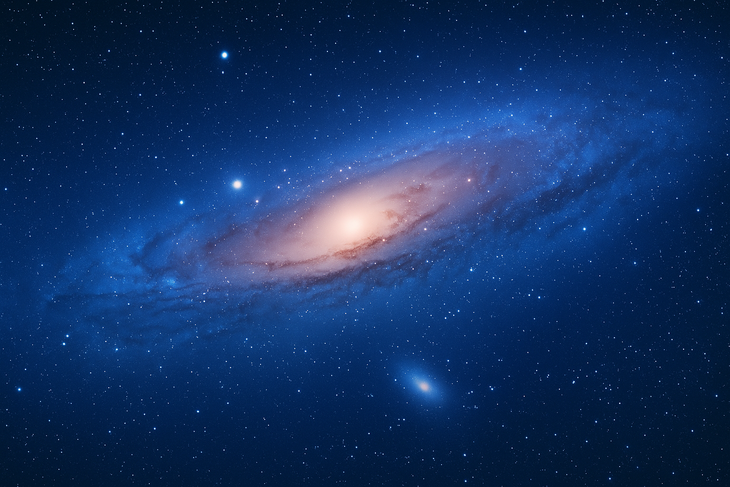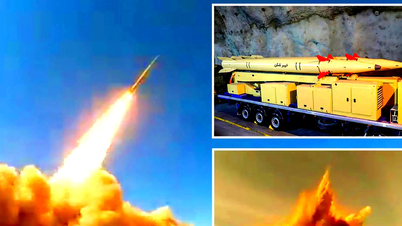The vast universe we live in may not expand forever as science has believed for decades - Illustration photo AI
Since the Big Bang more than 13.8 billion years ago, our universe has been expanding at an ever-increasing rate. Scientists have long believed that this acceleration is due to a mysterious force called "dark energy."
However, new data from the international research project called Dark Energy Spectroscopic Instrument (DESI) of Lawrence Berkeley National Laboratory (USA) has just revealed a shocking possibility: the pull of dark energy may be weakening over time and the possibility that the universe will end in a 'big collapse', completely opposite to the original 'big bang' (Big Bang).
The universe does not expand forever?
According to the most popular cosmological model today, Lambda-CDM (Lambda Cold Dark Matter), dark energy is assumed to be constant over time. In other words, its force pushing the universe to expand remains the same as when the universe was born.
However, by creating the largest 3D map ever made of the universe and tracking the effects of dark energy over more than 11 billion years of history, the DESI team has discovered that the picture may be much more complex, according to skyatnightmagazine.com.
When comparing this new data with previous observations, including light from supernova explosions and the cosmic microwave background radiation (a remnant from the Big Bang), scientists found signs that the pull of dark energy is weakening.
The Future of the Universe: "Freeze" or "Collapse"?
The fate of the entire universe may very well depend on the true nature of dark energy.
If dark energy is a cosmological constant (unchanged over time), the universe will continue to expand forever and end in a "cold death", often called the Big Freeze: where galaxies drift away, matter thins out, and energy is depleted like a thin layer of butter spread on a slice of cake that is too big.
But if dark energy changes over time, as DESI suggests, then a more frightening scenario could occur: the Big Crunch, a “big collapse.” Instead of expanding, the universe would reverse course and contract, eventually collapsing into a singularity just like before the Big Bang.
"Whatever dark energy really is, it will certainly shape the future of the universe. It is amazing that with just telescopes on Earth, we can find answers to one of humanity's biggest questions," said Michael Levi, DESI project director at Lawrence Berkeley National Laboratory (USA).
Revolution in cosmology
If the results from DESI continue to be confirmed, it would be a major breakthrough, according to astronomer Chris Lintott.
Because if dark energy is indeed a constant, cosmology may be stuck in its tracks. But if it changes over time, it opens up a new era of research that could allow scientists to disprove or confirm current theories, and most importantly: predict the future of the entire universe.
"DESI could help us determine whether the universe will coolly disintegrate into eternal solitude or violently collapse back to its starting point," Lintott stressed.
Despite ever-improving observational technology, the universe remains largely unexplained. Every new discovery brings new questions.
Continuing to research, observe and understand more deeply the physical phenomena in the universe is not only the story of scientists, but also the journey of all humanity on the path of discovering the profound nature of the world around us.
Back to topic
MINH HAI
Source: https://tuoitre.vn/vu-tru-se-sup-do-thay-vi-tiep-tuc-gian-no-20250610214519471.htm































































































Comment (0)